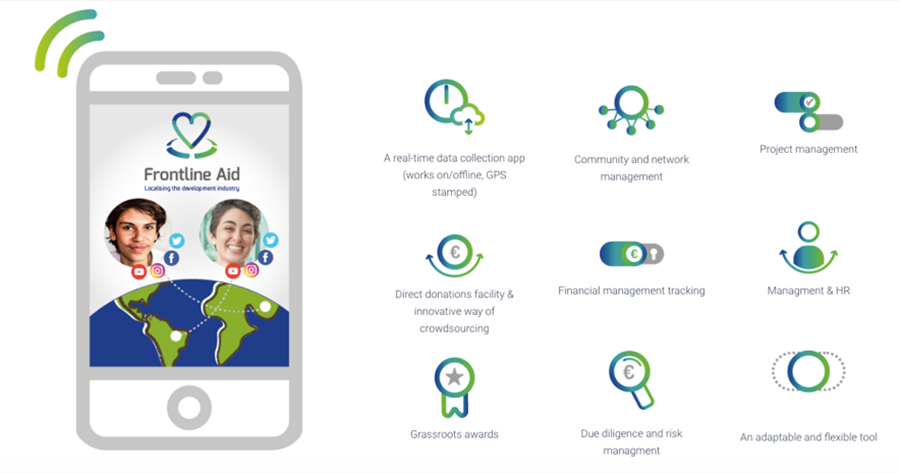Blog
Breaking the Wall of Cartels in International Aid
By Tarek Alsaleh, FrontlineAid
The world gave 146 billion dollars in aid last year, but less than one percent went to local initiatives. A group of frustrated experts is localising the development industry through innovation tech and sustainable development thinking to achieve change at the local level.
The world gave 146 billion US dollars in aid last year. An achievement to feel good about if it weren’t for one problem – less than one percent of that money reached local initiatives, even though it is these organisations that actually stay on the ground once the funding runs out. At the World Humanitarian Summit, the UN, aid agencies and over 20 governments decided to change that figure to 25% by 2020.
But we are far from making that happen.
Why? In the current system, it’s easier to give 100 million dollars to one large international organisation than 10,000 dollars each to 10,000 smaller local initiatives which keep struggling – day by day – to survive. We have a cartel structure in the aid system because only a few large organisations are able to handle all the red tape
Ahmed from Syria is 17 years old and lives in Zaatari Refugee Camp in Jordan. He runs a dance class for children. Even girls are allowed to go because the parents know him. He also encourages students who are having trouble at school. When he finds out that one boy is being beaten by his dad (who might be traumatised himself), he gets a community leader involved.
In short, Ahmed is a real changemaker. How can I support him in his important work? The easy way would be to donate to a large organisation, but how much of this money does Ahmed really see?
Research shows that money poured into aid is most effective if it supports and empowers local structures and people. Many of us, including me, are frustrated after having spent a decade seeding locally owned capoeira projects across war zones, including in Syria in a system that reveres the person with the best English and an MBA, not actual changemakers who can hold a child’s hands and get her to dance and then get her father, broken by war, to dance too.
So, the big question is, how do we make our desire to help more effective? How can we cut the red tape and make it easy for local changemakers to connect to supporters like us and vice versa? To tackle this issue, we have designed Frontline Aid, which provides advice and tech solutions while cutting out the middleman.
More than 30 pro bono consultant experts on business, finance, legal, marketing, IT development, UX design and communication are currently developing FrontlineAid. We put a particular focus on using innovation tech and sustainable development thinking to achieve change at the local level in war and conflict settings. Our poster project is built around Ahmed, whom we have put in the driving seat with his mobile phone in his hand.
Using only his thumbs, he can automatically generate all the data and inspiration that everybody needs: how many girls he is teaching in his classes, pictures, tasks, milestones, financial data and more. Frontline Aid visualises GPS and time-stamps data as soon as an internet connection becomes available and produces a real-time overview of the project that is owned by Ahmed – not our brand.
For supporters, we will be able to have personalised connections, constant updates on projects and collaborative work on tasks in no time. FrontlineAid aggregates data so that we can follow trends and give the support changemakers need to spend their time doing good instead of managing paperwork.
Enhancing human connections and moving towards trust and transparency is what localising aid is all about. And that’s how we break down the wall of cartels in international aid.
About the author:
Tarek Alsaleh is an entrepreneur, creating projects to support refugees, abused women and children with cancer while fostering new jobs and youth leadership and aiming at changing the aid system so that local people receive more of the funding
Published on December 14, 2018.
Image credit: Frontline Aid, a tinder solution to aid + locals connect
